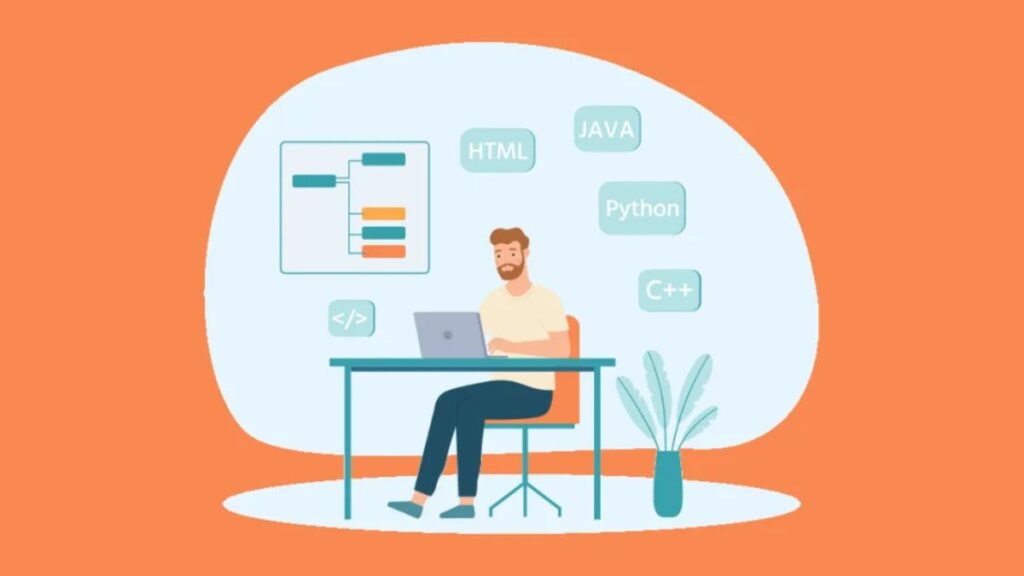In a digital age dominated by mega-platforms and Silicon Valley titans, it’s rare to see an underdog rise. Even rarer still is a platform that manages to fuse raw community energy with elite programming knowledge—and still remain under the radar. But that’s exactly what ProgramGeeks Social is doing.
A fresh blend of social networking and collaborative coding culture, ProgramGeeks Social is quietly becoming a hive of activity for developers, data engineers, ethical hackers, open-source advocates, and curious tech learners around the globe. If GitHub had a rebellious cousin who moonlighted as a knowledge-sharing ninja, this would be it.
This isn’t just another Stack Overflow clone or a glorified Discord server. It’s something more nuanced. More human. More alive. Let’s dive deep into what makes ProgramGeeks Social tick, and why it’s poised to become a defining voice in the next wave of tech culture.
I. Origins of the Geekverse: The Birth of ProgramGeeks Social
The digital birth certificate of ProgramGeeks Social is timestamped sometime in late 2023, when a collective of developers from Denmark, Sweden, and Germany decided to build a platform that was equal parts forum, sandbox, and social club. The idea? Eliminate the rigid hierarchies found in conventional tech spaces and build a playground where coders could share, collaborate, rant, and innovate without fear of gatekeeping.
The “Socialt” part of the name comes from the Scandinavian word for “social,” giving a not-so-subtle nod to its European roots and mission: to foster authentic human connections in tech.
While the platform originally launched as an invite-only experiment for university students in Copenhagen, it quickly ballooned as beta invites leaked to Reddit, Twitter (sorry, X), and the dark corners of Discord. What started with 300 users mushroomed into 30,000 in six months. Today, ProgramGeeks Social boasts a vibrant, active user base crossing 120 countries.
II. What Sets ProgramGeeks Social Apart?
1. Human-First, Code-Second
Unlike platforms that prioritize syntax perfection, ProgramGeeks Social emphasizes learning in public. That means it’s okay to be wrong. In fact, it’s encouraged.
New developers are prompted to share “debug diaries”—daily logs of what they learned, failed at, and fixed. It’s radically honest, and it’s deeply addictive. The feedback loop is lightning-fast. One post can trigger 50 responses in under an hour, with developers from Brazil to Bangladesh chiming in.
2. Threadscapes and Modular Discussions
The UX design of ProgramGeeks Social is unlike anything in the dev forum ecosystem. It trades linear threads for what it calls “Threadscapes”—modular, visual discussion boards where posts can branch off into subtopics, challenges, code snippets, and even live coding sessions via WebRTC.
It’s a visual treat. Imagine Trello meets Reddit meets Replit, but without the clutter.
3. Mentorship Microdosing
One of the most powerful aspects of ProgramGeeks Social is its micro-mentorship model. Every week, senior developers, industry leaders, and professors hold short “office hours”—30-minute drop-in sessions on niche topics like Rust memory safety, DDoS mitigation, or GraphQL schema design.
These sessions are recorded and tagged under a category called “Genius in a Bottle”, forming a growing video library with serious street cred.
III. The Rise of “Social Coding”
ProgramGeeks Social didn’t just launch a platform. It ignited a movement.
They’ve coined the term “social coding”, which goes beyond pair programming. It’s about building code with personality, quirks, and commentary. Think of it as open-source storytelling. Snippets don’t just sit there—they’re alive with emoji reactions, inline feedback, and GIF-powered celebrations when a bug finally gets squashed.
In a world where developer burnout is a raging fire, social coding is a breath of oxygen.
Here’s a recent post from a Python dev in Nairobi:
“Today I finally got my regex working for filtering out spam tweets. Thanks @DataJarl for the code review and @Maeve404 for the meme that made me laugh through 3 hours of debugging. ProgramGeeks Social is the real MVP.”
It’s this tight-knit-yet-global culture that keeps users coming back—not just for code help, but for camaraderie.
IV. Building a Culture of Knowledge—Not Clout
Unlike tech Twitter or certain Slack channels where clout-chasing often replaces meaningful discussion, ProgramGeeks Social enforces a “Clout Neutrality” policy.
No follower counts. No “verified” badges. No popularity rankings.
Instead, reputation is earned through “Insight Karma”—a proprietary algorithm that tracks how helpful, original, and contextually insightful your comments are across discussions. Upvotes alone don’t cut it. To gain karma, your comment must be flagged as “helpful” by multiple users across experience levels.
This keeps the playing field fair. A 17-year-old learning Go can stand toe-to-toe with a 12-year Google engineer, purely based on the quality of contribution.
It’s genius. And deeply democratic.
V. Privacy, Ethics, and the Anti-Algorithm
One of the bolder moves ProgramGeeks Social made early on was a declaration of platform ethics. This included:
-
No selling user data.
-
No algorithmic feed manipulation.
-
No ads, ever.
-
No tracking beyond essential analytics.
Instead of an algorithm deciding what you see, you subscribe to “knowledge clusters”—topics you’re interested in like cybersecurity, machine learning, or ethical AI. The community can vote on emerging tags, creating an evolving tag cloud that’s always changing with the zeitgeist.
This non-intrusive discovery model makes browsing feel more like exploring a digital library than doomscrolling.
VI. Not Just for Developers: The Expanding User Base
While ProgramGeeks Social started as a developer space, it has since attracted a broader range of digital thinkers:
-
Technical writers sharing API documentation walkthroughs.
-
UX researchers discussing inclusive design frameworks.
-
Open-source evangelists recruiting collaborators.
-
AI ethicists critiquing code bias.
-
Startup founders pitching MVPs and asking for honest tech reviews.
There’s even a micro-community called #SocioTech where sociologists and coders debate the cultural impacts of code.
In short, ProgramGeeks Social is turning into a town square for technologists, where code is just the beginning.
VII. Community Rituals and Inside Culture
ProgramGeeks Social has its own rituals and cultural quirks that make it feel less like a forum and more like a living organism.
Some fan-favorites:
-
Bug Baptisms – When someone solves their first major code bug, they’re “baptized” with GIFs and a badge.
-
Refactor Fridays – A weekly challenge to rewrite bloated code in under 20 lines.
-
MemeChain – A decentralized thread of tech memes that grows weekly. It’s chaotic. It’s hilarious. It’s pure dopamine.
There’s also an annual event called “CodeConfessions” where users anonymously share their worst coding sins. Like the time someone deployed test code to production… during a live demo. Ouch.
VIII. The Business Model: How Does ProgramGeeks Social Survive?
You’re probably wondering—how does a no-ads, no-tracking platform stay afloat?
The answer is surprisingly elegant.
-
Community Sponsorships – Companies pay to sponsor micro-communities like #CyberSecCrew or #AIethics without ad placement. They get visibility but zero say in content.
-
OpenSource+ – A paid tier that gives early access to code libraries, sandbox environments, and beta test invites.
-
“Skill Bounties” – Devs can offer bounties for help on specific coding challenges. Think Bug Bounty meets Fiverr, but with community verification and built-in peer review.
It’s sustainable. It’s community-first. And it’s working.
IX. Challenges on the Horizon
Like any growing platform, ProgramGeeks Social faces its share of hurdles:
-
Scaling while keeping it intimate – How do you maintain community feel at 1M+ users?
-
Moderation – The team is experimenting with AI-assisted moderation that understands code context, not just profanity filters.
-
Internationalization – As non-English user bases grow, translation accuracy and cultural nuance become vital.
But if the past two years are anything to go by, this community thrives on iteration. Beta is its bloodstream.
X. Final Thoughts: Why ProgramGeeks Social Matters
At a time when the tech world often feels cold, performative, and profit-driven, ProgramGeeks Social is offering something radical: a place to be human while building technology.
It’s not just about code. It’s about conversations. About errors. About breakthroughs. About the silly, stressful, beautiful mess of digital creation.
Whether you’re a junior dev who just learned what an API is, or a CTO debugging Kubernetes at 3AM, ProgramGeeks Social offers a digital campfire where you can think, learn, laugh, and build—together.






